These three girls can make you and in fact, everyone, in your house or at the office…more honest.
Really.
Let me explain…

Tonight I watched the final “debate” between Donald Trump and Joe Biden. And it really was apparent that the person who would be elected would be the person who undecided voters would trust.
Imagine you had all of your money cashed out of the bank and investments. You for some reason have it all at home and then you find out for some reason you have to fly across the world. Question: Can you write down the list of people you would trust to keep track of that money and keep it safe for ONE YEAR when you will return?
It’s a short list. And it’s not always the person “closest to you” or the person you live with or the person you love the most and THAT makes the exercise difficult.
And that…
…got me to thinking about who you can trust and who you can’t trust and why. And of course this is not our first visit to research on trust. Influence and persuasion happen or don’t in large part because of trust.
14 months ago I was playing at the MGM Grand in Las Vegas. I had about $12,000 cash in front of me. I got up from my seat at the blackjack table and took a restroom break. It dawned on me as it often does that I trust the people in a casino more than I trust people pretty much anywhere else in the world.

“Break time.” The dealer nodded.
I was probably back in 15 or 20 minutes.
The money was…
…right where I left when I returned.
In fact, I’ve played almost 11,000 hours of professional blackjack in my life. I’ve kept about $5,000 on the table and the rest off the table for a long, long time. Overall, I’ve left well in excess of a million dollars on the table, while taking a break, and 100% of the time the money was there when I returned. It didn’t matter whether it was $200 or $15,000. 100% of the time it was all there when I returned.
History has shown that my money is by far safer in the casino than it is in a bank, a brokerage and even in my own home.
I’ve seen a lot of interesting things happen in casino’s but I haven’t personally experienced theft. Very few visitors do.
I’ve become convinced that I am safer on the main floor of a casino than just about anywhere on the planet. Safer than this context below? Yep… safer than this.

Feeling secure in your environment is nurtured by feelings of trust. The eyes have a lot of impact in the equation as you’re about to see.
When I was in my twenties, it wasn’t long before I began to trust the casino and the people in the casino far more than just about anyone else or any place in life.
There’s all kinds of reasons why you are about as safe as safe can be, inside of a casino. Part (but only one part) of it is the incredible self discipline of employees and players in general that keeps people honest.
I can tell you how people I’ve talked with have attempted to steal from casino’s and succeeded…until they caught. In fact there are no shortage of “what the heck were they thinking” stories out there.
But my money ended up safe, 100% of the time.
The casino itself has no reason to steal your money when you leave it on the table. In fact, it’s not even being watched that closely by the employees because there are cameras on every table.
People who walk by your money on the table THINK they are being watched by dealers and floor managers.
Consider how the nonconscious “awareness” that you are being watched changes behavior.
Turn the page here…
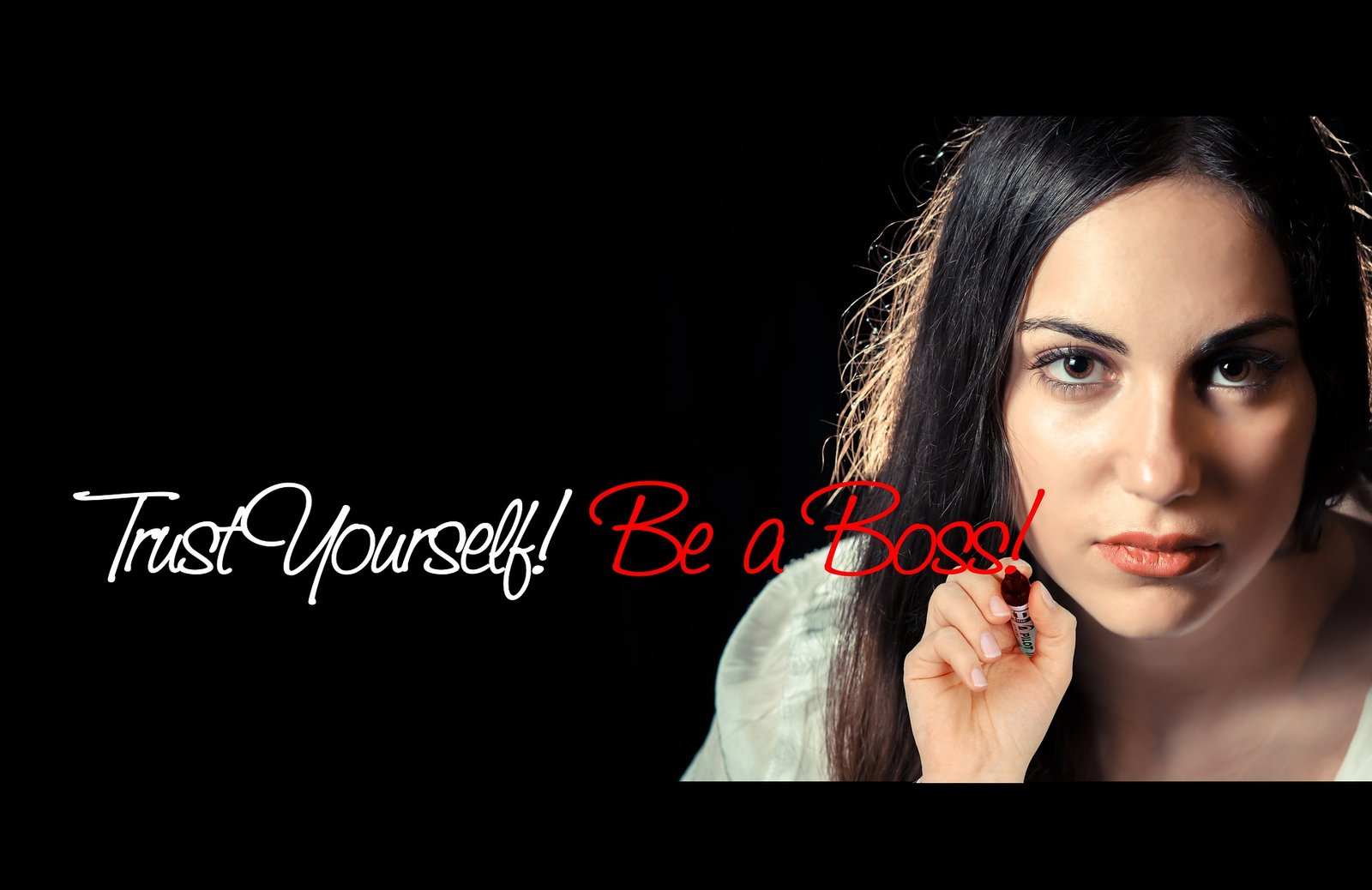
Print out that photo, put it in an 8 x 10 frame and put it above a person’s desk somewhere. Anywhere within two meters is fine.
It will induce honesty. Psychologists and advertisers have guessed this for years but I can tell you that I’ve tested this in numerous contexts including advertising, promotion and banners.
But let’s give credit to the first folks that I know of that did the actual first controlled study:
It’s actually an illusion that has been studied for years and part of the reason why it’s safe to have a small “honor box” business. These little boxes have been subject to a number of research studies.

Research replicated many, many times shows that when “eyes” are watching over the honor system (pay a buck take a candy bar) card board box filled with candy bars, those eyes looking down from a poster on a wall above the box have almost magical power. The result: People only rarely steal money from the cardboard box when the poster of even just the eyes vs. a person looking down over the box is concerned.

That simple hint that someone might just be watching goes a long way to keeping people honest.
In weeks with eyes on the list, staff paid 2.76 times as much for their drinks as in weeks with flowers.
“Frankly we were staggered by the size of the effect,” Gilbert Roberts, one of the researchers, told New Scientist.
[Read more: https://www.newscientist.com/article/dn9424-big-brother-eyes-make-us-act-more-honestly/#ixzz6buZgMOz8 ]
If you’ve wondered if the girls with the watching eyes can cause more than the characteristic of honesty, we’ve seen results of compliance, improved performance and better customer service with a broad spectrum of similar situations. Want your 14 year old kid to study better? Let him put a poster of one of his favorite Marvel characters on the wall. You’ll see ALL of the above in one shot.
I suspect that female figures work better than male figures but I haven’t proven it yet.
The problem is that people aren’t always around a place where “people are watching.” When they are? Things tend to go better.
But that doesn’t stop THE VERY SAME people in other contexts from robbing you blind.
In fact, the people you trust the most are often those that take more than all the rest of those who steal from you combined. And it turns out there are a lot of people who steal from you and others. The ironic part is that the theft is usually rationalized by the thief.
The question here is are there any people left to even believe when they say something?
More has been stolen by every day people in the last 20 years than the prior 250 years. And it isn’t even close.
And NOW things are getting more interesting.
Two things I look for in nonverbal communication as far as liking and connection are proximity to each other and facial expressions. In the covid experience, not only do I not get this visual data to sense trust, honesty, connection….neither do you.
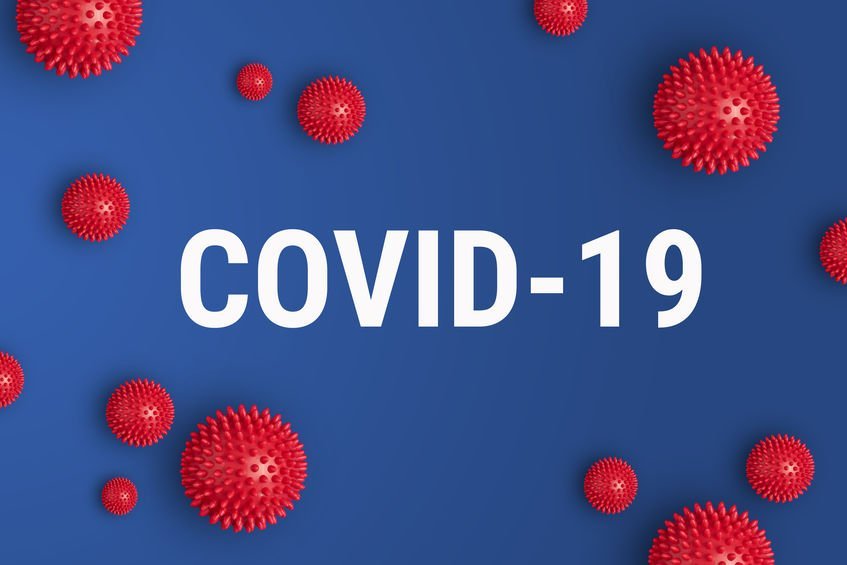
How are people’s behaviors changing in the wake of masks and social distancing?
And how is it shaping what was already becoming a pathological world stemming from a growing lack of empathy in humans worldwide.
Finally. Precisely HOW do YOU become more believable and more importantly TRUSTED by others in a world where most people are not and should not be trusted.
Trust: How Many Remain?
Here’s a bet. You don’t trust as many people as you used to.
Why?
Because a lot of people broke your confidence or loyalty.

And it hurt.
It leaves you with only a few choices. The two polar extremes of YOUR TRUST FOR ANOTHER come first:
You could…Trust the vast majority of people and continue to be hurt by the majority of those who come closest to you.
You could…Trust only a very, very few and miss out on all the possible good people who you alienated through distrust.
You could… find the road less traveled and of course perhaps the only real route is the hybrid option which means to put people on trial first then see how they test out.
In business you might hire someone with a 90 day trial period. This is actually pretty common in business. If things don’t “work out” the two parties go their own way.
But what about outside of a business context? How are you going to establish that?
If you consider “dating” you’re looking at getting together with someone after hours of correspondence and video chats, or in the now unusual dating world because you met someone wearing a mask at the store, as you are leaving.
You have nothing to judge as far as facial expressions. They are now fully trained to keep six feet between you and them. Sitting down at a table where you are less than 3 feet apart, nose to nose, seems like a stretch. Seeing the person 5 or 10 times over a month or two seems very likely. Where getting together at the house for dinner and wine was once at least somewhat likely, now it is much less so.
You simply trust people less today than you did before covid.
And before covid you trusted people less than you did before social media.
Social media creates a mental challenge.

You know how you filter pictures. You know how to frame or don’t frame what you did today. You know that most of what you do is “for instagram” and not really to record the experience. If the picture isn’t good you passionately delete it. Another photo is FAIR and if you can “fix it” great. You can turn yourself into a 7 from a 5. You can turn yourself into a 9 from a 7. Filter use teaches a person that they are simply dishonest. It’s like wearing a fake Rolex. People who wear copies of real things like purses, are more likely to cheat on you in a relationship. People use social media, especially Instagram for reassurance that they still matter in some way in life.
I like to use social media in small doses. I can’t remember the last time I promoted a product, service, course or Inner Circle on any form of Social Media but if I go back a decade, I MUST have. And who knows, maybe I’ll start pounding away on Tik Tok or Facebook with all kinds of cool stuff. But the fact is that each day it’s “fun” but that doesn’t mean you believe or trust over time, just about anyone in that space.
Yet, social media can also be a nice place to check up on the person you are going to meet in person. In fact, when working with promoters or people in various contexts I often don’t ask for an email until they friend me on Facebook.
My schedule is tight. If I think someone might be for real in some way, I’ll ask them to friend me. If they don’t, I don’t care. If they can’t because they don’t have an account (very rare in 2020) I ask them to follow me on Twitter. I don’t even like Twitter but one thing is for sure, they will be on one of the two mediums. And if they aren’t, they aren’t in business. And anyone who wants to do business with me better be in business. Facebook and Twitter are simply filters for seeing if the person is a real person. I get 50 requests for friending each week. I accept 1 or 2 and then either quickly delete them, or keep them, if they pass the “I’ve been around,” test.

On a personal level I simply have one question, “how did you hear about me and my work.” This is true on Linked In and pretty much all other platforms. I can’t remember the last time I friended someone else, so they better have a good story about how they knew me or I am skeptical…very skeptical. You don’t really randomly come across my name… or yours.
So that’s the beginning and often the end of the first door to trust. If someone friends me and I can’t see their friends list, they now have two strikes against them. I don’t care if that is their “normal” behavior, but if you want to do something with me, you better be as transparent as I am. My Facebook and Twitter are open to the world. I do understand exceptions, no question. But I’m skeptical. That means I simply put a question mark after everything they say. I don’t dis-believe them, I simply don’t trust them, yet. Belief that is validated consistently can become trust.
Now, once you actually believe someone about something, there is a chance you will come to trust them. Maybe soon. Maybe later. And imagine you do trust them.
You can be in what seems to be a fine relationship and then experience the person do all kinds of pathologically unkind things to …you.
Last year I made a one time loan of my car to someone I had come to trust. The car came back the next morning with $4,000 of damage. I haven’t done $4,000 of damage to an automobile or ALL of the automobiles I’ve owned including, vans, a motor-home and sporty little vehicles going back over 2,600,000 miles of driving. Never had a claim on my car insurance in my life. I didn’t even know what the process was. The person obviously needed to say, “I’ll take care of the cost.” The reality was that the individual couldn’t and I did and there was only one thing that could happen next.
Trust turned to massive doubt quickly. Most people simply would have turned the trust machine off. Others might think, “oh I’ve done $4,000 damage to a car before, it does happen, you know.” Actually I don’t know. 2.6 million miles. (That’s to the moon and back, FIVE TIMES)
Another small but memorable experience was that our office bought a $2,000 camera over in Europe. The camera was used for an event and never made it back to the United States on the KLM return flight. Trust turned to doubt. I’ve never had a camera stolen before but I’ve had other things stolen. But I’ve only had two handfuls of $2,000 items stolen in my life. That stung because that individual was trusted with my life. Simply never again.
Like you, you can see I have “concerns about trust.”
I’ve also experienced some of the most remarkable, even financially dramatic breaches of trust in business and personal life that a person can experience.
When you are on stage, you need a group around you that you can trust with your life and then have all the equipment and money get home.
All this and some people reading this probably think, “he’ll never believe me,” or “he’ll never trust in me.”
To be sure there are more safeguards in place for business and personal life than there were just a decade ago. You simply have to set up the tripwires a little more carefully. And you have to put limits on employees, their credit cards, friends and even some members of family.
There are more fascinating experiences but this sets the stage for putting trust together.
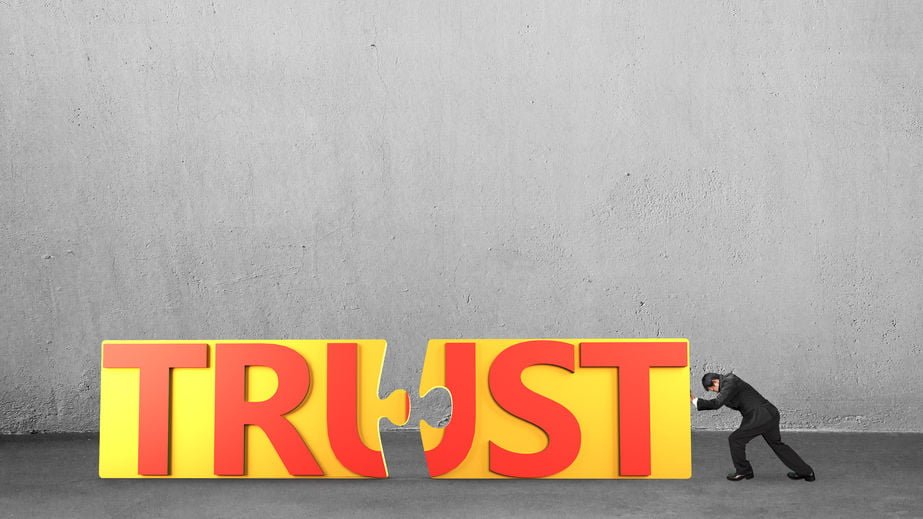
You have to be trusted by others or you don’t ultimately win in the game of life.
If you don’t have their trust, you blow yourself out of the water.
Trust is crucial for influence.
Trust is crucial for one on one persuasion.
Trust most often is the difference between yes and no.
Legend Point: A lot of people aren’t trusted because of how they look or speak. They appear threatening in some way.
It’s sad as can be, but some people just don’t look trustworthy or behave in a trustworthy manner, even though they are absolutely trustworthy in reality.
People typically judge trustworthiness in individuals using their gut reaction as an instant “yes” or “no” when they see someone. The criteria? Their physical appearance, the normalcy of their behaviors and their body language.
Getting past those instant appearances brings on a new criteria. At this point, a lot of people are trusted or not because of their track record.
Their track record, like a team’s Win/Loss record in sports isn’t a guarantor of future results, but it is a yardstick.
If the track record isn’t so hot, THEN what do you do?
Well, I did some digging…
You actually can measure trust and it is pretty easy to correlate trust and credit score. Not perfect, but no correlation is. Credit scores are 100% behavioral, though the documentation of reality behind credit reports is far from fool proof. The person borrowed and they did or did not do what they were supposed to do in returning the money. When the history is correct, that’s (Credit Score) a pretty solid predictor of character.
Check this out…on the next page….
You can develop trust where it didn’t exist before.
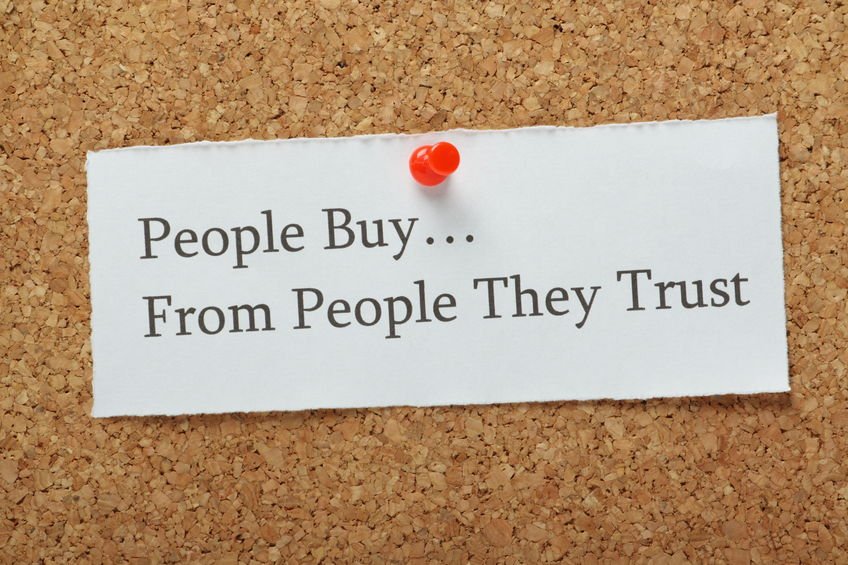
You can be seen as trustworthy, believable and make it a LOT easier for people to buy you, your services, and so on.
Here’s what you do…
Become the Person People Trust by Nature
You’ve no doubt heard of the adage,
“If you want something done, give the project to the busiest person.”
Being THAT guy is always a pain but the fact remains, he WILL get the job done for you.
That or something like it, has been around for as long as anyone can remember.
Now, why is that?
It would seem more sensible to give the project to someone who had nothing to do…wouldn’t it?
I mean think about it.
You have one person exhausted from overwork in the State of Overwhelm and another person doing nothing in the State of Yawn.
And the “rule of thumb” is to give “it” to the overwhelmed person.
It does initially seem crazy…after all, the person who is not busy has nothing to do…they should be able to “knock it out,” with no problem.
Francesca Righetti and Catrin Finkenauer at Vrije Universiteit Amsterdam were thinking about the same things you are. They did the research, starting with the basics.
The Three Aspects of Trust

Trust first means that you are going to be in an Interdependent Relationship of some kind with someone else. I can’t get X accomplished without you.
Second factor?
Risk.
If the guy fails, X doesn’t get accomplished. Guy succeeds, X gets accomplished.
Pretty simple.
When people’s “interests” or “investments” are close to equal, they both are more likely to work toward X and risk is reduced.
When people’s interests or investments are out of alignment, then one person has much more to gain than the other person, and they are less likely to perform.
Finally, trust requires a situation where there is a clear Freedom of Choice. Holding a gun to someone’s head and having them perform is not about trust.
Those are the 3 basic aspects.
- Interdependent Relationship
- Risk
- Freedom of Choice
Easy enough. Now what do YOU do with this?
Quick example?
Recipe for Trust
A study that just came out reveals that it is very easy for people to trust. It takes very few repetitions of positive behavior to establish trust with others.
This of course is WHY it’s easy to con people.
People say you can’t con an honest person.
That’s not true.
Let’s look at negative vs. positive factors.
If you establish a reputation as a gossip, for example, it will take a LONG time to build trust. The hole that is dug takes a LONG time to get out of. So BEGIN with focused efforts on building trust. They WILL take hold and you WILL be trusted long term.
I’ve told this story before. It’s definitely worth revisiting…
Why is the “first impression” as far as trust is concerned so important?
You can probably chalk it up to evolution or to people being consistent with their behaviors.
For example… people who behave with kindness today, tend to replicate those behaviors tomorrow.
People who are jerks (acts of cruelty) today tend to replicate those behaviors tomorrow as well.
In other words, the picture you see is what is likely to replicate. People seem to intuit this.
Research bears this out to be true.
In autumn 2010, I lost my voice for a protracted period (3+ months), for the third of four times in my life. It was pretty bad and I needed to have a very talented guest presenter, “substitute for me” at a gig. I was going to be there in person, but I was literally unable to do the gig. You can see photos of me on Facebook, at the event in Las Vegas, with a pad of paper and pen writing notes to my Event Manager, Ken Owens.
I really thought I could be in decent voice for the event but life had other plans.
I had to make a decision on who would pinch hit for me. It took a couple of days to do the trust math but I finally did and bought my trusted friend a ticket, got him a gorgeous hotel room, and put a few bucks in his bank account. In theory, that SHOULD mean I will have a great presenter taking my place, at the event.
Of course, the worst thing you can in businesses is not show up for your gig. That makes you someone no one wants to do business with. At the other end of the spectrum, it makes the person who “saves you,” a hero.
There was risk involved. I couldn’t present. It was not even possible. If he got sick, didn’t show up, the plane didn’t make it, if any of a thousand things happen…my audience loses and that means I really lose big. Self interest is also part of the trust equation.
So my good friend needs to show.
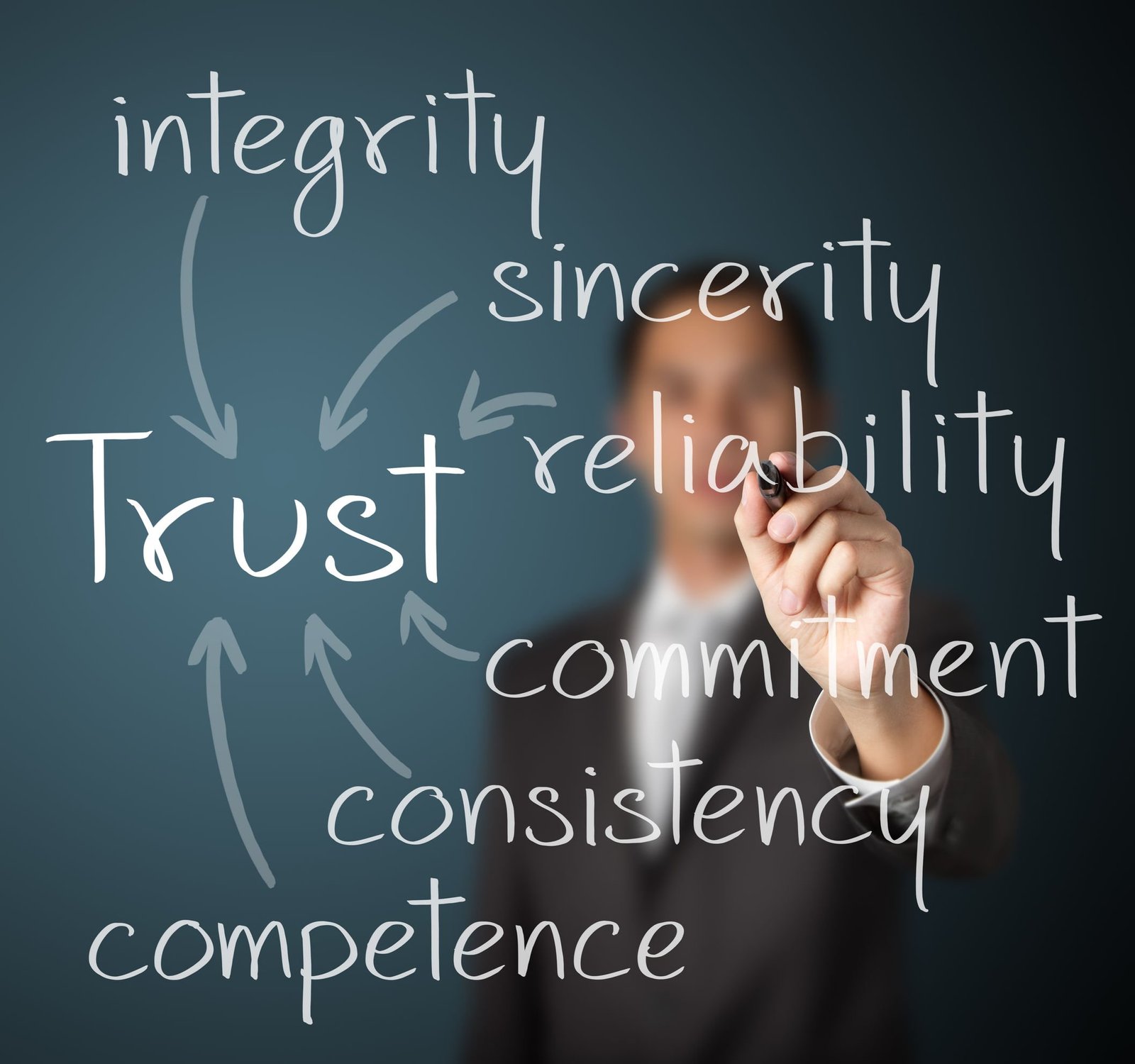
David had complete freedom of choice. If he gets an owie at the last moment, he can choose to not come. If he has a headache, wants to watch the World Series the trust in our relationship would vanish into thin air. Of course that didn’t happen. And David saved me more than once in my career.
We debrief and he goes on in my place AND PERFORMS brilliantly.
Because if he just shows up and is simply, “pretty good,” I am out of luck with my audience.
My audience is expecting Kevin Hogan, so the pinch hitter needs to be blisteringly hot.
I have one way to Win and a thousand ways to Lose.
So my trust in David must be carefully calculated or I must make another choice.
It’s always a gamble. Every interdependent relationship in life is a gamble. There are no sure things.
So how does David EARN that trust? How is it that I GIVE David that trust?
Shoot, why David in the first place?
Trust and Decision Making
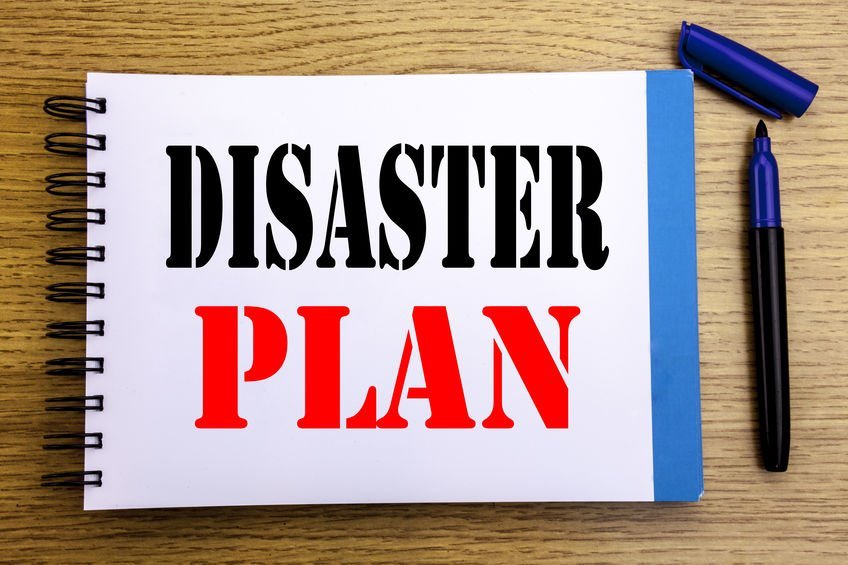
This specific situation was like a mega experience and experiment in trust.
My thinking begins with…
- Who can do better than what I can do in a given area of expertise that my audience needs and wants?
- Of those people who will be there while turning down someone hot person for a date in the interim? i.e. who will weigh our future friendship and business association to be greater than the hot one? The answer to this of course is huge.
- Who will deliver come hell or high water. Who will be amazing?
Who will go the extra mile and have my people saying, “Kevin Who?” I came up with a decent number and selection of names because I know a bunch of great people.
I had to eliminate 80% of those people for various reasons.
I eliminated Deb because she saved me last year when my keynote speaker didn’t show at the last minute. Being Super Girl only should happen once every few years. The great thing about Deb is that when she found out that I had David save me, she was mildly irritated with me that I didn’t text her FIRST.
That’s how you know you have a “right person.”
My best solution was David.
He accepted the opportunity to save me.
Was I making the right decision?
What EVIDENCE did I have?
Character.
What Makes a Person Trustworthy?
Here you go….
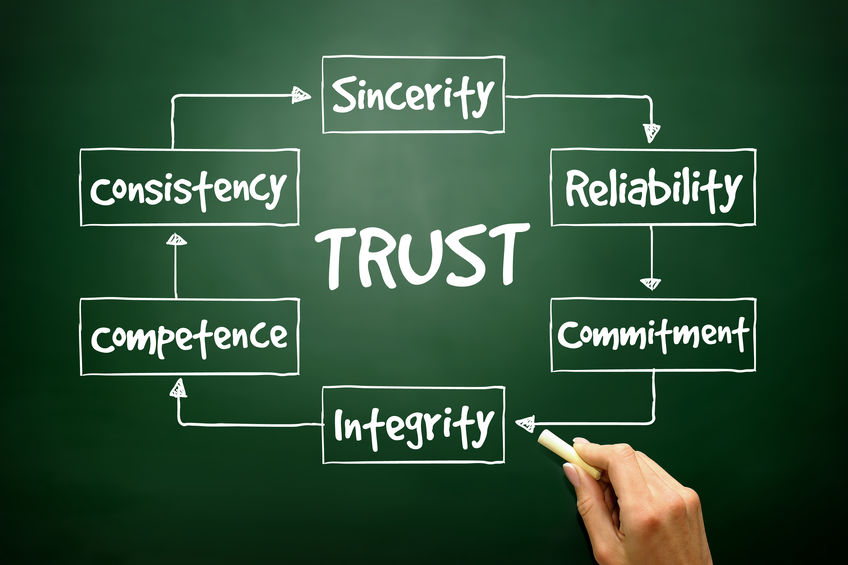
Most people think of trustworthiness as a “character trait.”
And like most character “traits,” it really is most often not.
Someone who is trustworthy in your experience and mind is likely perceived differently by a number of people.
We trust people who we personally experience as dependable.
We trust people who we personally experience as the one who gets the job done.
We trust people who we personally experience as safe in a way that is important to us.
We also trust people we’ve never met because someone we do trust has told us that this new person is trustworthy!
That of course means the person believes the person has been trustworthy for and to THEM.
In baseball, trustworthiness is not about whether the person is safe to hold your wallet but who is most likely to perform in a given situation. The manager selects the person with the best track record to pinch hit in that critical moment.
Trust isn’t a trait, it’s a context dependent thermometer.
An excellent predictor of trust is a credit report which is easily accessible by banks, insurance companies and employers to objectively gauge someone’s level of trust.
You and I can’t pull a credit report on friends and family or even the people we do business with. And your clients and potential clients can pull yours.
This makes redemption possible for those who have habitually screwed up in trust situations in the past. It also means that trust is not easily measured or perceived in an accurate fashion.
First thing you want people to consider is their EXPERIENCE with you.

I’ve seen David work for my audiences before.
I’ve seen people like and learn from him on more than one occasion.
I’ve seen him be timely, intelligent, wise, loyal, effective.
Each of those things determines how much trust I have in David or someone like David as the context changes. In some contexts, intelligence doesn’t matter much. In others the whole ball game rests on it.
I’ve done JV’s with him and his company fulfills products in a timely fashion.
The breadth of his knowledge on what I wanted to have him present would allow him to speak for DAYS even though I only asked for 4 hours.
That’s not a LOT to base “trust” on, but it’s more than most people objectively have.
In truth, dependability (will they be on time, every time, i.e. are they PREDICTABLE) is a critical factor in who trust is assigned to by another. Which brings up back to the Amsterdam researchers who wrote, Trust and Self Control for The Journal of Personality.
Trust is NOT a one way street.
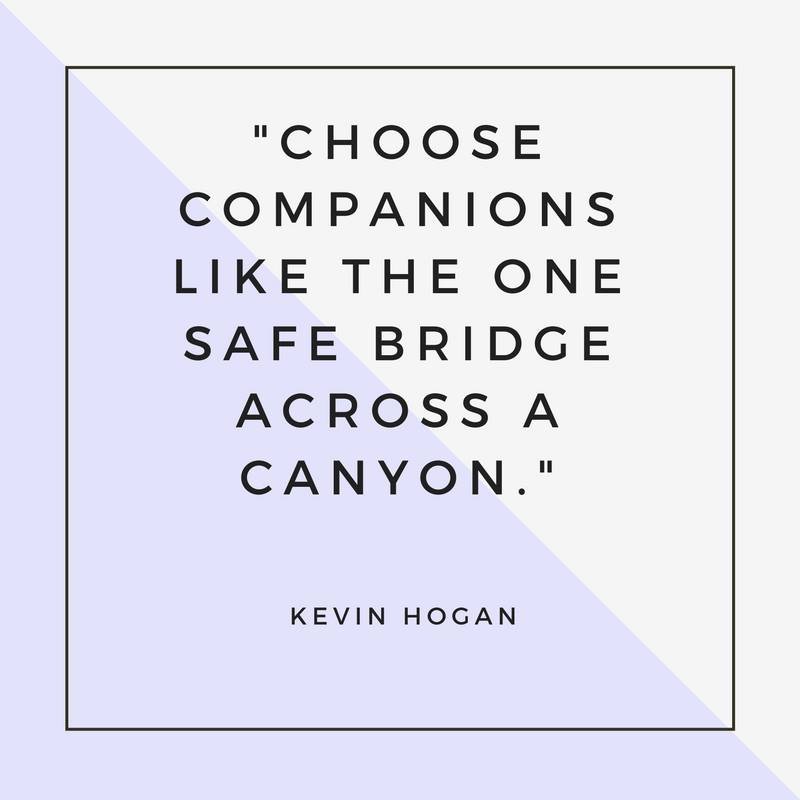
If you want someone’s trust, you must know that both people come into the ultimate equation of trust.
The trusting person, (me in this case) has to …first have the ABILITY to trust. That means the trusting person has to have the ability to influence.
…second have the BENEVOLENCE to trust. The trusting person has significant attachment to the trusted person.
There is a high degree of certainty in the friendship.
…third have the INTEGRITY to trust. This is my BELIEF that David/Deb have the integrity to come through. They have principles and values that are acceptable to me, the trusting person. In my mind, I have already declared them holy and I believe that my mind matters to them. That’s what I believe.
It could all be an illusion. I could easily be wrong. But you don’t put your event on the line with someone who is not holy in your mind. You can’t.
The Flip Side of Trust
On my side of the coin, it all comes down to their knowing my BELIEF they will perform brilliantly and I see their MOTIVATION as high, to act favorably toward me over other options.
Trustworthiness is not just about them. It’s about US.
Trusting that person means that I believe they will act MORE in my favor than Self Interest in reference to this event.
Are They Worthy?
Most people are worthy of trust by some people and not others.
SOME people are worthy of trust by most people. They are individuals who are focused on the opinions and beliefs of others while expecting a specific set of behaviors from themselves. They want to be predictable.
No one is worthy of trust by everyone in every context. Not even you and me and you and I are both more than a little attentive to the needs of others and the perception of ourselves in others!
Ultimate Decision Factor
The ultimate decision factor in whether I will TRUST that person is the same factor most people measure with.
No one is consciously aware of it, but people trust those who predictably exhibit self regulation.
If they can self regulate on your behalf and BECAUSE of you, they can very likely be trusted.
You and I have evolved to believe that the person who you have seen repel outside influences in favor of taking care of your best interest is the best choice to trust.
Trusting someone without behaviorally predictable self control is obviously dangerous.
That’s a lot of holy.
How to Be Afforded More Trust
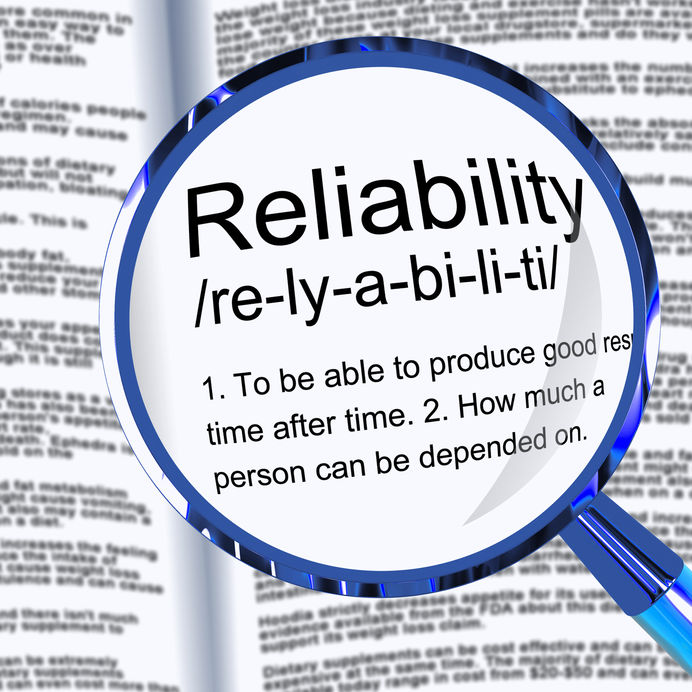
The researchers in the study found that people who were observed as having achieved a goal, offered forgiveness or had been reliable were afforded more trust by most people.
We also know that you can only go to the well so many times in life. The Hote One might be easy to brush off the first time, but the second?
Self Regulation means that when you observe a person and evaluate their trust in light of behaviors that showed self control the first time you are more likely to trust them than when Self Regulation Units are used up.
It’s human nature.
It’s a lot easier to say no to snacks early in the day than late at night. Everyone lives it. Everyone knows it.
Knowing all of this, I’m sure you are going to identify with the notion of not being a completely trusting individual!
The question is, “is that a smart choice?”
If trusting others is part of the trustworthiness equation in others it seems counter intuitive to not being trusting.
What’s the answer?
A metaphor…
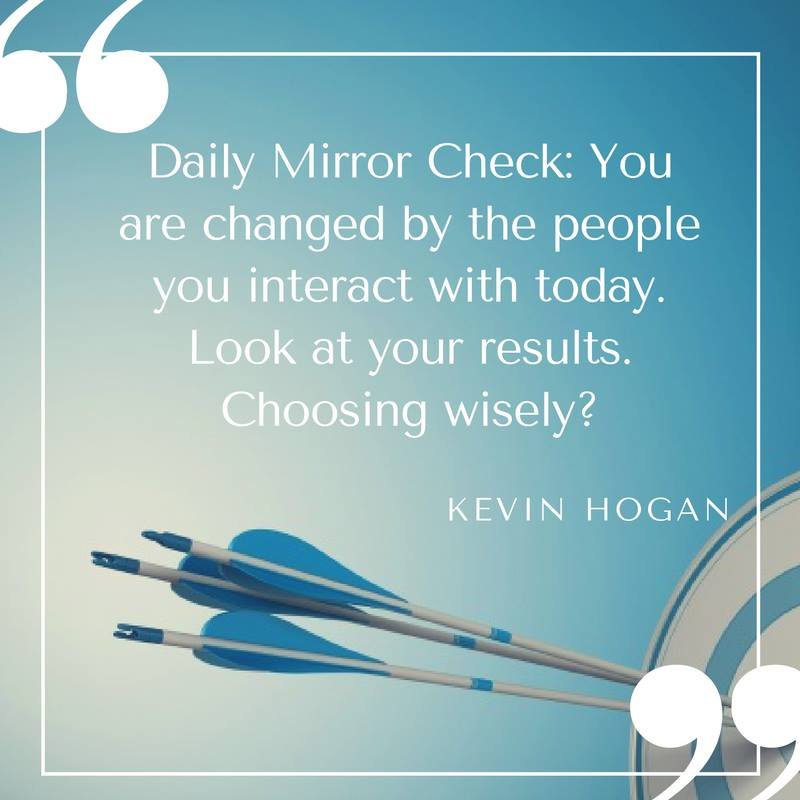
Should “Trust” Be In Your Vocabulary?
People with a great deal of real world experience with many people over many contexts tend to not be as trusting as people without real world experience in many different contexts.
People who travel don’t even bother putting the word trust in their vocabulary. The point is moot.
- Hotel
- Airline
- Rental Car Company
- Hotel Event Staff
- Hotel Event Promoter
…and you have to ask?
Travelers, more than just about anyone, know that to trust is often similar to begging for a bad experience.
BUT, the research shows that if you don’t trust, the person won’t come through.
This doesn’t mean if you do trust they will, it just means that your odds increase.
Therefore, you trust…with a back up plan.
Key to Trust
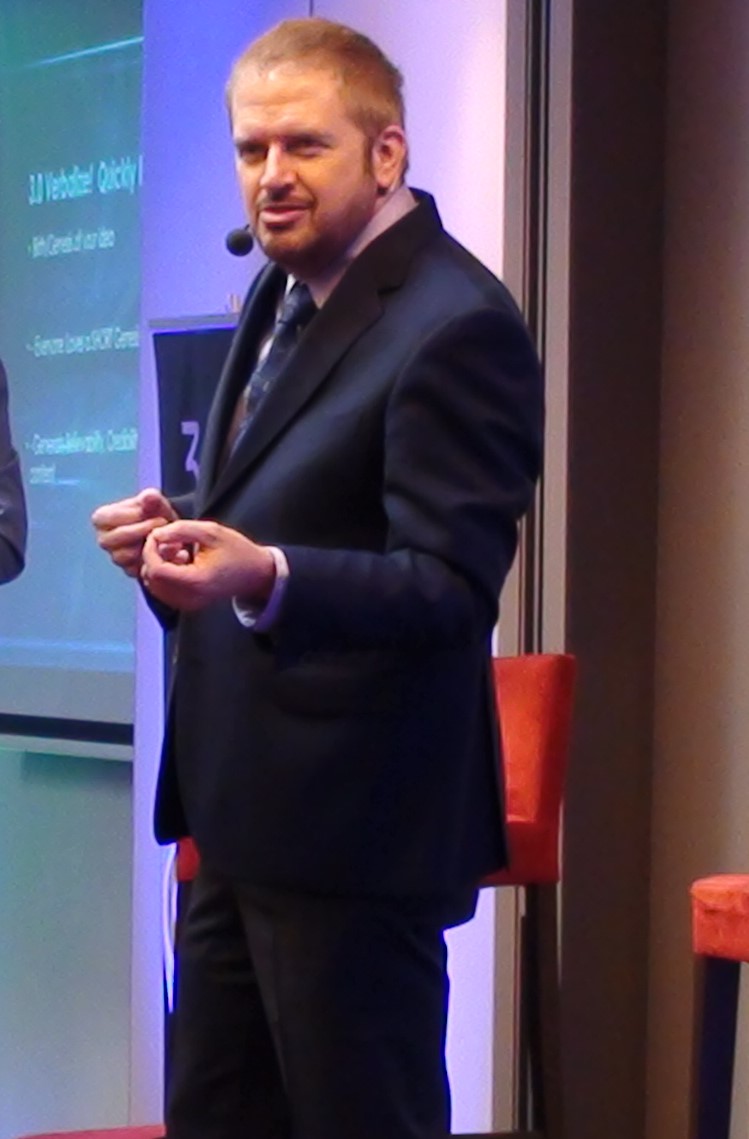
So WHO do you and I trust, for real?!
The results of research show that you and I will trust people who SELF REGULATE.
If you want people to trust YOU, then you better start Self Regulating NOW.
You are the person who gets stuff done, always makes it happen, is there in the clutch.
That image is not maintainable except by the person who actually Self Regulates. And as we have often discussed, most people don’t self regulate well or wisely.
Getting people to trust you is a function of causing people to see you as someone who self regulates.
David, in retrospect wasn’t the right choice, he was the obvious choice.
You want to have as many people like David Garfinkel and Deb Cole in your life as you can.
And you want to be able to show your public that YOU are (like) David and Deb and that YOU come through in spite of stiff competition when real life arises.
Decision Point: The Right Decision, Every Time

Discover a System of Decision Making That Will Clear the Way to Success
Begins May 24, 2024
If you’ve ever taken one of my Course Intensives, yes, it’s like them!
The Decision Point Course lasts 7 weeks and has more than 20 modules. You set your own schedule – you don’t have to be “in class” at any particular time each day. You get VIP access to a secret members-only section of the KevinHogan.com site and can log in at any time.
Registration today for the course that begins this week allows you to save $700 off the $1,995 price to the public.
If you could point to one word, to one factor, to one element or cause of what happens to you in your life, it is decision.
Maybe you have been experiencing one or more of the following:
Moving is always tough but when there are more than one person’s job or one person going to a school that they love and the possibility of leaving friends behind makes for what many consider an impossible decision. What do YOU decide? How do you decide?
Your investments have done OK but your total income saved for your future is terrible. There are a lot of options you’ve been told about but you really don’t know what to do. What will you decide? How will you decide?
You are a manager at your company and only have enough budget to pursue one product line. You can choose between an almost sure thing with a very modest return or a riskier proposal that could make you a superstar. What do you decide? How do you make the decision?
You’re on your way home for the holidays. You get stuck in bad weather and are put up at a local hotel. In the bar that night a beautiful woman strikes up a conversation with you and she has offered you the key to her room. What will you decide?
A relative lives with you. They take advantage of you but you can’t let them go because you don’t know what will happen to them. What is the right thing to do and will that thing be what you decide? How will you decide?
An elderly relative lives with you. They can’t take care of themselves anymore. You hate the idea of a nursing home or “worse.” You also want “a life.” What will you decide to do?
Your wife is two months pregnant. A test reveals the baby is going to be born with a disease that will require your 24/7 care for the rest of your life. She decides she wants to keep the baby. But you haven’t made your decision. What will you decide to do? How will you make the decision?
Your home has a horrible defect that you can cover easily in the selling process and the defect almost certainly won’t be discovered for years. Revealing it will reduce the price of your home $100,000. What will you decide to do? How will you decide?
You can stay at your present job which you really don’t like that much and live on a predictable but very modest income or you can pursue a venture that has about a 70% chance of success and if it succeeds, you would double your income. What do you decide to do? How do you decide?
You’ve been thinking of getting a divorce but you’re just not sure. There are other fish in the sea but you wonder if you can still compete? Can you do better? What about the kids? What do you DECIDE? How do you decide?
You are involved in a custody battle for your children. One of the kids is misbehaving terribly and you don’t know whether you should spank them or discipline them firmly. The result could easily affect the results of the custody hearing. What do you do? How do you decide?
Two women have taken a liking to you. You date them both for some time. They both begin to talk about moving in and a permanent relationship. One is the kind of person you feel comfortable with and would be easy to love. The other is 10 years younger and is celebrity beautiful. Unfortunately, she knows it and enjoys being the center of attention. What do you decide? How do you decide?
And those are just a few of the decisions that face real people every day. Decisions that people are forced into and have no idea what to do or how to do it.

THIS COURSE shows you how to make ALL of the decisions above.
And it’s important to note, that the right decision easily can be different from person to person. Knowing how to evaluate THAT is crucial to everything you will do…but no one ever does it….
If you haven’t taken a Course Intensive with me: this is not like other online courses you’ve taken. With me, a Course Intensive means you will have instruction in several media forms. Video, audio, and text. There is NO specific time you must meet with me every day, but you will have special VIP email access to me throughout the course. And you will have access to the members’ only discussion group.
About 50% of the people who take my courses collect all the materials and work at their own pace later. The other half work with me and sometimes with other participants when necessary, on projects that are necessary to learn how to make the RIGHT DECISIONS.

My Course Intensives are universally known to be challenging, results-oriented, pragmatic and show you EXACTLY how to get where you want to go.
It’s the Decision Point
Decision making is a function of thinking that almost 90% of people do very poorly. Most people think that if something turns out well, they made a good decision. If something turns out poorly they made a bad decision.
And that conditioning is one of the biggest reasons why people are poor decision makers.
Decision making is first and foremost about MAKING DECISIONS IN THE FIRST PLACE.
Every day, people vacillate on making changes in their lives that they KNOW are absolutely necessary, but they decide to do nothing and hope for the best, only to live a life where nothing ever changes.
This is where we begin.
Elimination of PROCRASTINATION and VACILLATION.
You will learn how to recognize situations where you are about to commit acts of self-sabotage. I’ll show you how to identify it long before it becomes an issue. I’ll show you how to crush self-sabotage so you can make a CHOICE instead of only having the ability to stay with the Status Quo.
This first week’s module alone will be worth the investment in the course.
How would you like to NEVER procrastinate again?
What would happen if you could actually MOVE in the DIRECTION that you want to, even if it is ONLY AWAY FROM WHERE YOU ARE TODAY?!
By the end of week one, you will have daily projects to do for several weeks that will almost literally beat the habits of self-sabotage and procrastination from your life.
Most people don’t know that procrastination is a habit you picked up, but it is NOT your fault.
The same is true of self-sabotage.
I will explain why, where it all started, why it happens to everyone and why it must be eradicated intentionally and with no little effort. By the END of the course, IF YOU FOLLOW the Decision Point Plan, you will have eliminated procrastination and almost all forms of self-sabotage.
I’ll explain in detail why self-sabotage is a little trickier and lurks in EVERYONE’S backyard waiting to strike. I’ll show you how to get rid of it and then prevent it so you never have to deal with it in the future.

And that is only week one! How we doin’ so far?!
Decision IS Destiny
You make decisions all the time. Generally speaking, the more decisions a person makes, the more successful they are.
The better a person is at making decisions, the more successful they are.
When you move from your old home to the home you are in now; maybe you moved because you wanted a bigger house, or to put the kids in a better school district. Maybe it was just closer to where your job is…more convenient.
And of course, in the case of uprooting and moving your family, you’re talking about a lot of variables, a lot of things to consider. You’re going to find out how to make the right decision in which house to buy and where to move.
What about leaving your job for some other opportunity?
FEAR enters the picture quite clearly and because the future is seemingly unpredictable, you feel frozen or stuck as to what to do, so you immediately default to stay in your same job. But there is a way to make this decision much easier. And you’ll be pleasantly surprised when you do….
But there are also the smaller decisions of life.
- Which movie to go see…
- Which show to watch on TV….
- What to make for dinner…
- Whether to go to the game or stay home….
- Whether to take a vacation with or without the kids…
- Whether to wear blue or black…
There is a simple method that takes little thinking at all to make these day to day decisions.
And then there are decisions that you make that influence other people’s lives like taking a new job, going into business for yourself, moving to a new area, having a surgery that has risks involved….
How do you know what to do? Don’t worry, most people haven’t got a clue as to how to make the right decision every time, and there is a right decision to make.

Then there are Destiny Decisions…those decisions that you make that will literally determine where you are going to be in three years or five years.
These are REALLY IMPORTANT decisions. Every day I see people screwing them up as if they are no big deal.
You’ll find out a methodical system that might take a very short amount of time or significantly longer, depending on circumstances. Nevertheless, you will find out exactly what to do every time.
Obviously, there are plenty of Black Swan’s (unexpected random events like hurricanes and terrorism) out there to get in the way of what you want in life, but nothing you can control impacts your life more than a decision).
Write that down.
Put it on the refrigerator.
That alone is worth $10,000, yes?
Nothing you can control impacts your life more than a decision.
How would life be different if you knew you were going to make the right decision, every time?
(Every time?!)
Did you know that in life, there is almost always the best decision?
What would happen if you had the method for decision making?
What would it be worth to have a simple systematic approach to decision making where the guidelines are from your head and heart?
Most people are paralyzed with uncertainty about whether they should:
- Ask the girl to marry them.
- Make a purchase.
- Move from one place to another…
- Quit their job…
- Decide between committing one person or another.
- Start a business…
- Ask the girl to go out with them…
- Send the letter or not…
- Decide between hiring one person or another.
- Get a divorce…
- Send your kids to public or private school…
- Choose from a new car, a used car, or no car…
- Go back to school to get more education…
- Fire the person or not.
- Invest in stocks, bonds, real estate and not screw up.
- Accurately plan for their future in all areas.
Why Do People Make Bad Decisions?
And…they make bad decisions because…we all have about 8-10 areas of failure in our brain….similar experiences where you make the wrong decisions over and over again.
(Like marrying the same guy five times, dating jerks, working for idiots, saying the wrong thing at the worst time, etc. Sound familiar?)
We’ll repair all of that. (If we don’t, life will be the same tomorrow as it has been in the past….)
Did you know there is a proven way to make the right decision in each of the above choices?
Now STOP.
For the sake of discussion, let’s assume that is correct. There IS a method you can use to make the RIGHT decision just about every time.
It doesn’t take a genius to think, “I decide to make more money,” “lose weight,” “get a better job,” “get married to perfect person x”.
KEY: Learning the process of making the right decision involves making that decision STICK, be UNYIELDING and barring a Black Swan, guaranteeing you will follow through.
Over the last 15 years, we’ve been fortunate to have studied the raw information about how to make laser beam accurate decisions. Complex software programs have shown scientists how to simplify the decision making process using some mostly simple (sorry, it’s not ALL instantly easy!) rules.
And now, you don’t need the software or the computer anymore…
And, by the way, in the last 15 years, there has been an incredible amount of research done about decision making that teaches and uses VERY FAULTY processes, that can’t and don’t work.
KEY: You’ll experience FIRST HAND, how what seems to be an obvious decision, is almost always the wrong one….the costly one…(often the disaster one….)
If you follow that teacher’s advice, you’ll flat out screw up.
You’ll end up with next to nothing and headaches and heartaches to boot.
Why?
People get emotional.

People are lazy.
They don’t do the research.
They don’t test.
Why should they?
They get paid the same no matter what and when YOU screw up, they just say, “you did it wrong.”
Play along for just a moment.
Can I ask you a question?
Have you ever read that it’s been proven that 93% of all communication is body language?
Of course, lots of times. Everyone has read that.
And of course, it’s not true.
(It’s not even close to accurate.)
How could that be, it’s common knowledge…isn’t it?
There was one study done by a brilliant communication researcher 35 years ago that evaluated people saying one word to another, with the other person only being able to see the person from the neck UP. (that leaves about 90% of the body out of the study.) In this one specific instance, Dr. Mehrabian found that about 93% of the communication sent was at a nonverbal level. Obviously when people communicate with more than one word and people can see below the neck, all kinds of factors change the percentages.
Problem is people read something in a book written by Goofball X and they believe what she writes because she says it’s “scientific.”
People look at their lives and think, “I did everything I was told…”
Yep and look at that life. It didn’t work.
The guru didn’t do the research. They went with the party line and taught that.
I don’t care about the party line because I don’t like the people at the party.
Remember when Benjamin Franklin did his famous experiment about testing each of the virtues (temperance and so forth) for a month so he could eventually become adept at all of them? I’ve heard most motivational speakers talk or write about this. I’d name them, but it would take an entire page…
Anyway…You remember… but he gave up the idea after the first week …he never did the experiment. He wrote early in his biography that he was going to do the project and then soon after decided not to. Basically, he said it was impossible to do such a thing.
I’ve never heard ANYONE get that right, either.
But THEY TEACH YOU TO DO IT…
And because you trust them YOU TRY IT and FAIL.
Franklin’s personal challenge didn’t work for all kinds of reasons I’ll show you later.
Question: Why did you believe he actually did the project?
Only one reason: …because someone you trusted or believed, an author, a teacher….told you that it was true.
Want a quick way to filter a crummy guru out?
If they tell you that story, they didn’t get very far in Franklin’s biography. If they tell you that, they’d tell you anything.
By the way…what did Franklin do instead?!
I’ll show you that at Decision Point, too.
The point is that MOST of the stuff people tell you to do…. that is “scientific,” that is based on laws of the universe or proven techniques is nothing more than their imagination having run wild.
…and following their advice will get you the same ultimate destination, every time…
Back to Start. (If you don’t go into foreclosure first.)
So why don’t the vast majority of people make good decisions?

Why are people AFRAID to make decisions at all?
They’ve been given crummy information and worse methods for how to choose and what to do.
It’s that simple.
(OK, there are eight other core reasons people make crummy decisions every day, but to pick on your neighbor here is so not cool…)
And what does the Power of Decision Point give you in life?
- Choice
- Personal freedom
- No limits
- The Ability to Succeed When Most Others Fail
- The Ability to Make Big Changes in Life with Ease and…
- Wealth if You Want It
- A LOT Better Life If You USE The Power of Decision
- Success when you use The Power of Decision.
You’re going to learn it ALL in this 7 Week E-Course.
If you’ve been in an E-Course with me, you know that although they are always convenient, they are also densely packed with practical, real life application as the end result. That is the same here. Everything you learn will be immediately applied to a crucial part of your life because there is a LOT going on in your life right now and a LOT of it has to change but you don’t know WHAT.
Each week you’ll receive a number of emails or documents from me. You’ll have homework assignments that are all real-life based…your life. You’ll be given audio’s to listen to or video to watch. You will once again, find out what “over delivery” means!
You’re going to discover:
- How People Decide
- Why Most People Make Almost All Bad Decisions
- How to KNOW What to do…
- The Four Factors of Luck and How to Tilt the “Luck Factor” in YOUR Favor.
- How to Beat the Black Swan when Bad Luck Strikes…
- All of the Successful Strategies for Decision Including Decision Point: MY PERSONAL SYSTEM
Do you sell something for a living?
[Pay attention: I’m going to show you how to analyze how your client WILL DECIDE on buying your product or service…and I’ll show you WHAT is going to happen next…think that might be worth $10,000?!]
I’ve never given the system for DECISION POINT to anyone.
I’m not going to write about it in Coffee….ever.
But the time is now to experience a truly transformational experience in an exciting and unique E-course.
I PROMISE YOU:
No one else is going to ever show you this information. You’ll never experience these experiences with anyone else. You can’t find anything remotely similar “out there.”
So essentially, you’re stuck spending seven weeks with me. As with all of my Course Intensives, I am your PERSONAL COACH and you don’t have to be at any specific place at any specific time. The program is delivered via audio, video, and text.
So what’s going to happen in these seven fascinating weeks?
I’ll personally show you the problems you face when you make decisions.
You’ll find out the impact of other people on your decision.
I’ll show you how to minimize the NEGATIVE impact of other people on your decisions, including the people you might love or work with every day.
You won’t regret your decisions anymore.

You’ll understand how to MINIMIZE RISK and MAXIMIZE RETURN on both business and personal decisions.
I’ll show you EXACTLY what to do when the RIGHT decision you determine, FEELS completely wrong.
Finding out how your beliefs, faith, values and lifestyle factor into your decisions matters a lot to you. No one else shows you how to be true to yourself and others around you while you decide for your Self or for many.
Almost forgot…
At the end of the course, you will have one cool, big Coffee Table-Sized Manual that you will be able to refer to forever.
Your tuition: $1,995 but save $700 with this last minute chance to get in today!
A couple things before you apply!
- I reserve the right to reject any application for any reason.
- There may be a few group projects that are necessary for making decisions where two people are involved, instead of just you (as in a marriage, with kids, or at work). If you are unwilling to e-mail one of your fellow participants during these two projects do not apply.
- Everything is yours to keep, but you may not share or give away any of this information to anyone.
- If you’re still here with me, then I look forward to seeing your application!
$1,995 but save $700 today by getting your application in under the wire.!





















